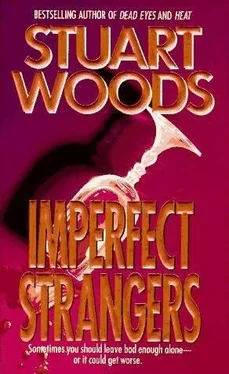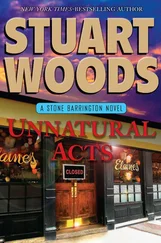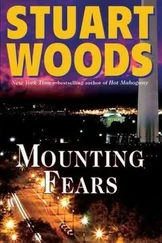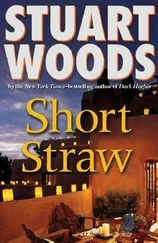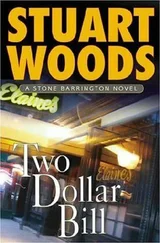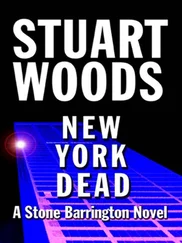Duvivier looked at the envelope. "Yes. And there were no prints on either the letter or the keys."
Leary held up the two keys. "Both copies; one looks like a Yale, the other, I'm not sure. Outside and inside doors of an apartment house, maybe? Like a brownstone?"
"That's certainly common enough," Duvivier said. "Could be. But what case?"
Duvivier took the keys back, took a magnifying glass from his desk and examined them both. "Third Avenue," it says. "Stamped right here." He pointed with a pencil.
"That the locksmith?"
Duvivier had a look in the yellow pages. "Third Avenue Locks and Safes," he said. "The number looks like in the eighties. Want to take a drive?"
"What else have we got to do?" Leary said, taking his coat from the back of the chair and slipping it on.
On the drive over to Third Avenue, Duvivier tried to stop thinking about the keys, to just let his mind wander. He sometimes made a mental connection this way, but it wasn't working today.
"Here's the shop," Leary said.
They double-parked, put down the visor with the department identification, to keep from getting ticketed, and went into the shop.
A man got up from a workbench and walked to the counter. "Help you?"
Leary showed him his badge, and Duvivier put the keys onto the countertop. "You make these?" Leary asked.
The man picked up both keys and held them up to the light.
"One of 'em's a Yale, isn't it?" Leary asked.
"They both are, and I made 'em," the man replied.
"Got any idea who for? You have any records?"
"I have excellent records," the man said. "Whenever I do the locks for a house or a building, I keep good records. But these are off-the-street stuff. You know, some lady comes in, wants an extra set for the maid? That kind of stuff I don't keep records on; I'd get writer's cramp."
"Got any idea what the keys might be for? I mean, like the outside and inside doors for a brownstone?"
"That kind of thing, I guess," the man said. "Typical door lock keys, as opposed to car keys or padlock keys. That's about all I can tell you."
"Thanks," Duvivier said, and the two detectives left the shop. Back in the car, Duvivier rested his head against the seat back, then sat up straight. "Head over to Fifth Avenue," he said.
"Huh?"
"Fifth Avenue."
"You had a thought?"
"I've had a thought."
Leary parked the car, and the two men got out. "I follow your thinking," he said.
"It's a long shot, but worth a try," Duvivier replied. They crossed the street, and Duvivier led the way down the steps. He tried the first key; it went into the lock, but wouldn't turn. He extracted it and tried the other key. It worked. He opened the door. "Come on," he said.
They walked half a dozen steps to the storeroom. Duvivier inserted the key into the lock and turned it. "Yes!" he said.
"They're Kinsolving's then," Leary said.
"Yes, and he gave them to someone who's now in Los Angeles. Come on, let's get out of here."
Back in the car, Duvivier asked, "Do we have a photograph of Alexander Kinsolving?"
"No reason why we should," Leary said, "and there wouldn't be anything on record, since he doesn't have a record."
"Where could we find a recent photograph, do you think?"
Leary thought about it. "Remember, Kinsolving took his wine business out of the Bailley company?"
"Yes."
"Maybe there was an announcement about it somewhere?"
Duvivier grinned. "The Wall Street Journal," he said. "Let's go to the public library at Fifth and Forty-second."
When Duvivier left the library he was still grinning, and he had an envelope under his arm.
Leary laughed aloud. "We're such terrific fucking detectives," he said. "They couldn't do no better on 'N.Y.P.D. Blue.'"
Duvivier took the photostat of the newspaper article from the envelope and placed it on the locksmith's counter. "Have you ever seen this man before?" he asked, then he held his breath.
The locksmith held the stat up to the light and thought about it for a minute. "Yeah," he said, "I think I have. Hang on just a minute, will you?"
Duvivier and Leary changed glances.
"It's not enough to hang him," Leary said.
"No," Duvivier replied, "but it might be enough to crack him, if he thinks we know where the keys came from."
The locksmith came back from his desk with a newspaper. "Yeah," he said, "I thought I'd seen him before." He tapped the front page of yesterday's New York Daily News.
Duvivier and Leary looked at the newspaper and saw Sandy Kinsolving at the airport, walking behind an Arab, then falling behind a luggage cart.
"Has this man ever been in your shop?" he asked the locksmith.
The locksmith shrugged. "Lots of people come in this shop," he said. "Who knows?"
Duvivier sighed.
In the early afternoon Sandy sat in Sam Warren's conference room at the Mayfair Trust and listened to the phone conversation between Sam, his lawyer, and Larsen and his lawyers in San Francisco, as they worked through minute changes to the sales documents for the vineyard. Simultaneously, he went through the list of assets of the vineyard and through the appraiser's report, asking questions and looking for anomalies. At four o'clock Sandy affixed his signature to each of the documents, and their representative in San Francisco, having ascertained that Larsen had signed, presented the seller with a cashier's check for nine million dollars.
At last, Sandy had his vineyard. He walked back to the wine shop slowly, enjoying the summer afternoon and contemplating the changes and improvements he would make. There was an owner's house; Cara could furnish and decorate that. There was the change of name; Cara could design the labeling. He would gradually sell off the wines made under Larsen, and in the autumn, his first vintage would come in, the first wines bearing the name Kinsolving Vineyards. He was a happy man.
He was less happy when, back at the shop, his secretary intercepted him on the way to his office.
"Mr. Kinsolving, that Detective Duvivier and another policemen are waiting in your office; I didn't know what else to do with them."
"Thanks, that's fine," Sandy replied, gritting his teeth. He walked into his office and Duvivier and his partner, Leary, stood up from the sofa. "Afternoon, gentlemen," Sandy said, taking a seat at his desk. "Have you found my wife's killer?"
Duvivier walked toward the desk. "We're making real progress," he said, placing a pair of keys on the desktop.
Sandy looked at the keys; he knew exactly what they fitted and that they could have come from only one place. "Keys?" he asked.
"The keys to your building's basement and your storeroom," Duvivier said, then stopped.
"Whose keys?" Sandy asked.
"The killer's keys," Duvivier replied.
"You've arrested him?" He hoped to God not.
"Not exactly," Leary said.
"You're pursuing him, then?"
"Not exactly," Duvivier replied.
"Detective, please explain exactly what is going on here," Sandy said, with a note of irritation in his voice.
"We thought you might like to tell us," Duvivier replied.
"Tell you what?"
"How the killer got the keys."
"Why do you think I know that?"
"I believe you took your keys to the Third Avenue Locksmiths and had them duplicated, then gave the duplicates to the killer," Duvivier said.
"Then you're a fool," Sandy replied, "and you're wasting both your time and mine."
"We took your photograph to the shop and showed it to the locksmith," Duvivier said. "What do you think he said?"
"Detective, don't ask me questions to which I obviously do not have the answer."
"All right, Mr. Kinsolving, the locksmith said he had seen your face before. In his shop."
Читать дальше
